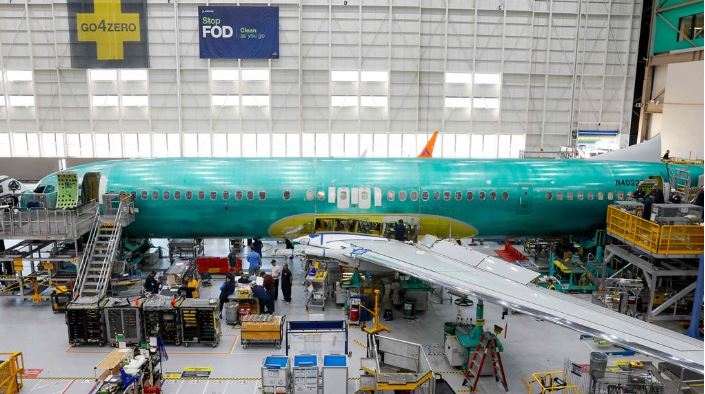Brisbane: The Boeing 737 MAX remains under intense scrutiny despite its widespread presence in global airline fleets, including those of Virgin Australia. The aircraft's troubled history, characterized by two fatal crashes and persistent technical problems, has sparked renewed safety concerns. These issues have been highlighted in an investigation by Channel 7's Spotlight program, with coverage provided by AFP and 7NEWS. Photo credits: 7NEWS
Revelations and Ongoing Issues
Recent investigations have unveiled troubling evidence that Boeing was aware of a significant defect in the 737 MAX's MCAS (Maneuvering Characteristics Augmentation System) prior to the Ethiopian Airlines crash in March 2019. The MCAS system, designed to automatically adjust the plane’s nose to prevent stalls, malfunctioned due to incorrect sensor data, leading to the crash that killed 346 people in total.
Spotlight’s investigation revealed that Boeing suspected an electrical fault in the sensor wiring but failed to fully disclose this issue to investigators. Instead of addressing the defect, Boeing suggested temporary troubleshooting measures, which were inadequate and ultimately failed to prevent the crashes.

Systemic Failures and Congressional Findings
A 2020 U.S. Congressional inquiry highlighted a pattern of technical miscalculations and management errors at Boeing. The report described the crashes as the result of a series of failures, including faulty engineering assumptions, lack of transparency from Boeing, and insufficient oversight by the Federal Aviation Administration (FAA). Despite these findings, Boeing has not faced criminal prosecution, opting instead for a deferred prosecution agreement which included a substantial fine and settlement costs.
Current Status and Ongoing Concerns
As of now, Boeing has delivered seven 737 MAX planes to Virgin Australia, with 31 more scheduled for delivery by 2027. The aircraft remain a significant part of the global aviation fleet, with over 1,500 737 MAX planes in operation across more than 80 airlines.
Despite these assurances, several former Boeing employees and industry experts remain sceptical about the aircraft's safety. Whistleblowers have expressed concerns about the manufacturing process and the company’s commitment to addressing known issues. One former safety manager has publicly stated that he would not feel safe flying on a 737 MAX, citing the unresolved safety concerns and the company's handling of past incidents.

Regulatory and Airline Responses
Regulatory bodies such as Australia’s Civil Aviation Safety Authority (CASA) maintain that the 737 MAX meets all safety requirements. CASA emphasizes that it works with international partners to address emerging safety issues. Boeing asserts that it is committed to safety and transparency, citing the extensive flight hours and operational history of the 737 MAX as evidence of its reliability.
Virgin Australia's chief operating officer, Stuart Aggs, has reiterated the airline’s confidence in the 737 MAX, emphasizing that safety remains the top priority. He points to the continuous improvement in aviation safety over the past 50 years as a testament to the industry's commitment to passenger safety.
A Cautious Path Forward
The ongoing debate over the 737 MAX underscores the need for rigorous safety standards and transparent practices in the aviation industry. As the 737 MAX continues to be a major player in commercial aviation, the industry and regulators must remain vigilant to ensure that past mistakes are not repeated, and that passenger safety remains paramount.